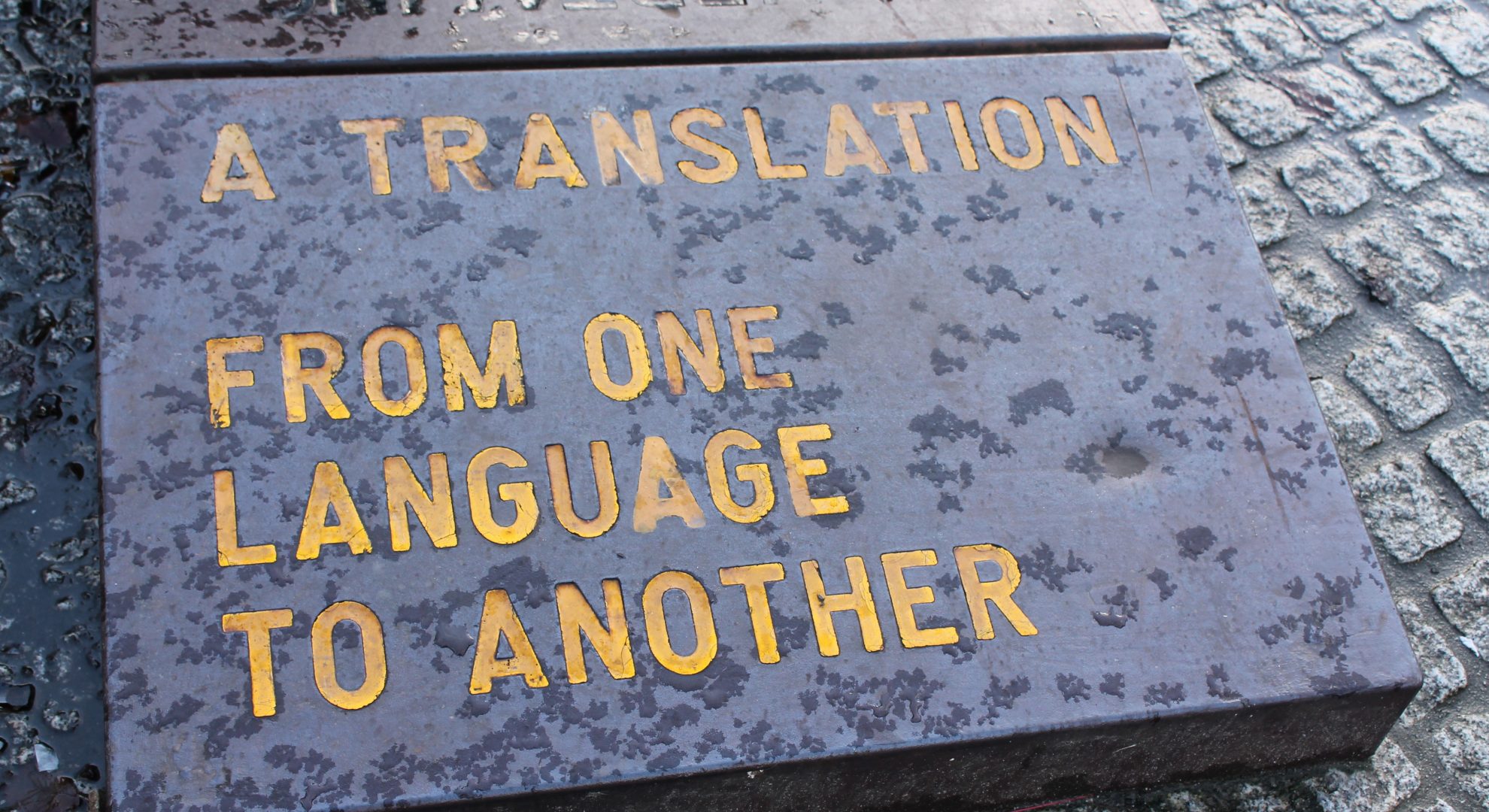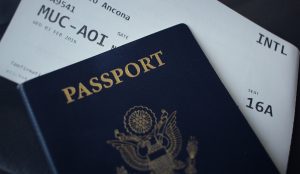Today, we’re continuing with our self-appointed mission to help translation buyers and we’re working through some of the main FAQs that we see across the internet. Let’s start with the fundamentals.
What is a translation?
When looking at any translation services definition, it’s important to state first off that translation relates to written content. When it comes to spoken language, interpreting is the service that is required. However, let’s avoid tangents and get back to a specific translation services definition.
You may (or may not) be aware that there is an internationally recognised standard for delivering translation services (ISO 17100). It provides the following translation services definition:
“Intangible product that is the result of an interaction between a client and a Translation Services Provider”.
So. That’s clear, right? In case you’re still feeling a bit confused, I humbly suggest the below definition:
Translation is the process of rendering written content from one language into another language.
Although not a necessary part of the definition of translation, I would also add one key point. It is important that the aforementioned translation is completed by a qualified and experienced translator. Unfortunately, using any old French speaker or someone with a long-neglected O Level probably won’t be sufficient for business purposes.
How are translation services priced?
We’ve already looked at pricing for translation services in our Ultimate Guide to Translation, and we have also looked at per-word pricing in greater depth. If asked how much translation costs, it’s near impossible to give an exact figure when placed on the spot – language combination and text type will affect the price.
What we can say though is that when it comes to pricing for any service, the key is transparency. Everyone involved in the transaction wants to be sure that they know what work is required and how much money will be charged. Prices for translation services in the UK are no exception to this.
For this reason, the majority of prices for translation services in the UK are based on an analysis of the source text.
For Western languages, analysis is usually carried out per source word, though other units include per line or per page. It’s easy to see why – words are easily countable, so both purchaser and supplier can be certain what the cost of a project will be with no nasty surprises. For Asian languages, characters is the preferred unit. One glyph in Chinese is equivalent to a word (roughly), so again transparency of effort vs. cost can be achieved.
An alternative to source analysis is the target count price. The basic principle behind this strategy to work out prices for translation services in the UK is to consider the “work” done by a translator, and again it provides an unequivocal measure of work completed, leading to a transparent cost. However, when translating from one language to another, the amount of words used will change, sometimes dramatically. French to English word counts often decrease; whereas German to English increases in word count. This adds complexity to a quotation – target analysis quotations can only ever give you an estimate of how many words might be in your target text so the final price will be different.
When comparing prices for translation services in the UK, it can be difficult to know which is cheapest if they are using different means of analyses. However, it is worth bearing in mind that rates are usually adapted to account for word count increases or decreases, thus leading to a roughly equivalent end cost. To give an example: For a German source text, a translator may have to type significantly more words when translating to English, and a target word price will be adapted accordingly.
The main situation where a target count is agreed upon is in the case of a non-editable file. If the only copy of a source text is a PDF scan, it is a long and arduous task to count each word. Yet if a target price is agreed upon, billing is based upon the end result and both client and translator can be sure of a transparent price.
Why do we need translation?
As I reach the third section of this blog, I wonder if I should have put this question front and centre at the top of the page. Here I am, writing copy to explain the various facets of language translation services, but I didn’t start with the ultimate question. Do we even need translation? We sometimes ignore the fact that not everyone is convinced that translation is actually necessary to start with.
So. Let’s lay out the facts:
The world as we know it is shrinking every day. The process of globalisation has led to the world being increasingly interconnected thanks to trade and cultural exchange.
Thanks to the internet (among other things), we can purchase goods from and communicate with China just as easily as if they were down the road from us.
Language translation services might not be responsible for the technological advancements that make that happen, yet they are paramount to its success.
In order to buy a product from China, we need to understand the product description and price. Similarly, in order to sell a product to China, the consumer will need to understand your own product information to be sure of what they are buying.
Leaving aside the widely published statistics about customers preferring to purchase in their own language, a customer cannot buy a product if they do not have any knowledge of the language. Language translation services therefore facilitate global trade.
What is a certified translation?
A certified translation is a translation that has been completed by a certified translator or that has been certified by a registered company. Certified translations are often required for translations of identity documents that will be submitted to governmental bodies.
Each country has a different system for certified or sworn translations. Many countries have a recognised program and accreditation to be completed, thus allowing the translator to claim the status of “sworn translator” or “certified translator”.
There is no equivalent in this country, therefore translation services in the UK have to use a slightly different process if they are selling translations into English. There is currently no official system in the UK for assessing and registering certified translators.
Instead, the translation supplier provides a form of certification that attests to the accuracy and quality of the translation.
There are several official bodies for translation in the UK; the ITI, CIOL and ATC. You can learn more about each one in our Ultimate Guide to Translation.
What are the types of translation?
This is quite a tricky question to answer as it could have several different answers.
When it comes to pricing for translations, there are two main price differentiators (aside from the language combination). The first is the purpose of the translation; whether it is needed for information only or whether it will be published.
For translations that are required for information only, accuracy is important, but there is not the same focus on the text as in cases where the final text will be published.
The second price differentiator for translations is the text type. For example, legal translation services or technical translation services.
Legal translations can be more expensive than other types. Translators have often completed additional qualifications to support them with their translations and prices reflect this. Legal translations often include contracts, terms and conditions and certain company policies.
Technical translation services relate to the translation of technical documentation such as technical sheets, specifications, manuals and safety information. Certain technical specialisms command higher prices as they are so highly specialised and require such in-depth research skills.
What makes a good translator?
Buying translation services can be a confusing process. In many cases, the buyer may not be very familiar with the service that they are buying. Added to this, it can be very difficult to judge the quality of a translation if you are not experienced in translation and have knowledge of both languages.
If you cannot judge the quality of the output, you want to know that the supplier is qualified and experienced. For this reason, the concept of a certified translator can be reassuring; someone else has tested and approved them previously!
However, it is important to be aware that the UK does not have an official system of certified translators. Never fear though, there are other ways to judge whether someone is a good translator.
The ISO 17100 standard for translation considers suppliers to be qualified if they have an MA in Translation or similar, or a BA in Translation or a foreign language plus three years’ full-time translation experience.
In addition, there are official bodies such as the ITI (Institute of Translation and Interpreting) and CIOL (Chartered Institute of Linguists). Both of these organisations offer assessment programs for translators. Possessing MITI status or the DipTrans qualification can go some way to assuaging a customer’s worries about potential output quality.
Yet perhaps this doesn’t get to the core of the question. In my experience, qualifications and experience are a good basis for judging whether a translator is good or not. They show that they have the theory and knowledge to deliver a good translator. However, to be a good translator, you also need a few additional attributes.
You need to have creative flair in your target language, you need excellent attention to detail, and you need to be able to research terminology and concepts in depth.
Only when you can claim to combine qualifications with these skills, can you claim to be a good translator. In my opinion, at least!
Can I translate my own documents?
For the average Joe (or Josephine) on the street, their only contact with the translation industry is when they require a translation for some of their official documents. They might have moved to the UK from abroad and need translations for their identification documents, or perhaps they are planning a move and want to make sure that their new host country will accept their proof of identity.
I’ll make a generalisation that often, such people are bilingual to some degree, and the temptation is there to save costs and to translate their own documents for submission to official bodies.
Unfortunately, in these cases, certified translation services are required, and a self-made translation will not be sufficient for their needs.
The term “certified translation services” refers to translations of official documents that undergo various levels of certification to guarantee that they are a true and accurate representation of the original source text.
These levels of certification vary between countries and languages. Each country has its own requirements for which quality guarantees are needed, as well as having their own systems for “sworn” or certified translators.
There is therefore no one size fits all definition of certified translation services, but there’s no need for panic. Translation agencies are used to dealing with these types of projects and will be able to advise on the specific requirements for an individual’s situation.
What makes a good translation?
A good translation is one that is an accurate rendering of the original text with no errors or omissions, as well as one that replicates the spirit and tone of the original in order to create the same effect on the reader as the original language version.
When you order professional translation services, you expect that your translation will have all of the characteristics above.
Every word in the original text should appear in the translation and it should be translated correctly for the context. Be wary of any “false friends” that look like they should be the correct translation yet have a completely different meaning in the target language.
Most important though, for good quality professional translation services the effect on the reader should be the same. If the original text is a powerful marketing piece, the translation should also use impactful and convincing language.
What qualities should a translator have?
STAR UK is a relative rarity among translation agencies, as we have an in-house team of translators working on our projects. We pride ourselves on delivering top translation services, and we find that this is the best way of ensuring we provide quality translations to our customers. For this reason, we know what we think are useful qualities for a translator.
For this question, I’m going to interpret qualities as soft skills, rather than personality attributes. I don’t believe that there is one personality type or a set of qualities that will make a translator good or bad. Our team is testament to the diverse world of translators and we think that every one of them helps us to provide top translation services to our customers.
While pondering this question, I actually came up with a very long list, so you can be sure that this topic will form a longer blog post in future weeks. Yet if I were forced to choose only three attributes, I think I would say that common sense, creative writing skills in the target language and the ability to work independently for at least part of the day.
Do I need to be certified to translate documents?
A quick Google search of document translation services will provide an array of results all claiming to offer “certified translations”. But what does this really mean? Do you need certification of your document translations?
Generally speaking, if your requirement for document translation services relates to proof of identity, you will require certified translations of your documents.
In the UK, we have no official system for certified translators, but it is considered best practise to have translations carried out by a registered agency or a translator that is a member of an official body such as the ITI or the CIOL. So, if you want to provide document translation services for birth, marriage or death certificates to give just a few examples, then you would need formal qualifications in translation or a language.
What skills do translators need?
I touched on this early in the article when I discussed what qualities a translator should have. To deliver high-quality professional human translation, there are a few important attributes that a translator must have.
Personally, I think that research skills are key to delivering good professional human translation. Translators have specialisms; a specialist subject if you like. Though even if a translator spends the majority of their time translating a tractor manual, there will still be occasions when they need to research a new component or technology that has just been developed.
Secondly, the key differentiator for machine translation versus professional human translation is the translator’s ability to manipulate language. Machine translation struggles to decipher and to replicate puns or word play and cannot appreciate the same nuances of language. For this reason, writing skills in the target language are also important.
Does Google translate cost?
Most people know that there are google translation services. It’s simple enough – enter source language content into one box, select the required target language and press go. It is a free-to-use service available to anyone with an internet connection. The short answer to the question is therefore no. Google Translate does not cost.
However, there are hidden drawbacks to google translation services that can actually make it costly for your business.
Google translation services use the vast amounts of data available to Google in order to generate translations. As the translations are provided by a machine, it cannot judge between the quality of two translations of a term and its output may be quite poor. For this reason, if a company uses Google instead of professional translation services, they might find that their translations do not deliver the required effect.
Another consideration is that Google Translate uses machine learning to continually improve its suggestions. Every request and corresponding translation is stored in its database so that it can learn from previous work. What this means in real terms is that document confidentiality is lost when Google Translate is used. Use of online translation services can violate non-disclosure agreements resulting in heavy fines and a potential loss of trust. Ouch.
What are the advantages of translation?
In a business context, translations allow you to communicate with potential buyers in new markets. It allows you to expand your brand awareness, increase engagement with your content and products and ultimately, make more sales.
Top translation service providers can help you tap into new markets and bring your products to new audiences.
If you are the expert in your products, you can consider top translation service providers as the experts in conveying your message in new languages.
However, this isn’t the only benefit. STAR UK is a proud sponsor of Translators Without Borders, a non-profit organisation that aims to close language gaps that hinder humanitarian efforts. For example, a TWB survey found that 33% of survivors of Hurricane Idai do not have information that they can understand. Survivors in Mozambique use local languages, rather than Portuguese; the official language of the country and the main language of the humanitarian communication. It is therefore important that translations are provided to these survivors.







